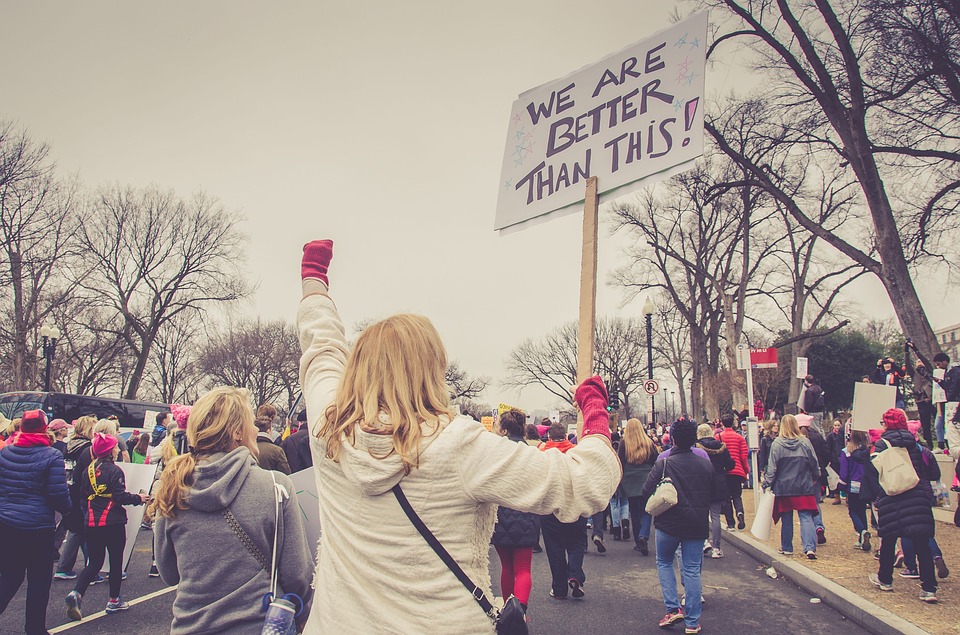
Harvey Weinstein. The “Times Up” campaign. Donald Trump’s war against women’s rights. Everywhere we look, sexism is a familiar part of the world we live in. As a woman living in 2018 I Rachel Hains explores the second ever “Women’s March” in London, reminding us that the fight for equality is far from over. cannot help but wonder, how can this still be the case?
This question was on the lips of the thousands of people who, on the 21st of January 2018, marched for a second time in London. The march was aimed to promote current issues women are facing globally including battling for equal pay, stopping sexual harassment and issues surrounding racism. These are all basic expectations for a modern, civilised country. Yet, people felt the need to take to the streets to remind those in power – those there to protect and serve them – to do their jobs and uphold women’s rights.
On one hand, women have made an astounding amount of progress in the last hundred years. We now have the right to vote. We have an Equal Pay Act to legally protect us in the workplace. We also have the right to own property and have control over our sexuality. On the other hand, as Labour MP Stella Creasy said at the march, “We still have so much further to go.”
it will take 200 years to achieve an equal number of women in Parliament
In the UK the gender pay gap is still at 9.1%. It may be at its lowest rate for 20 years, but it is still one of the many issues that need addressing within our own country. Three million women in the UK are victims of rape, domestic violence, trafficking and other violence every year. These are not rarities, but realities women face every day. A report by the Fawcett Society even states that at our current rate of progress, it will take 200 years to achieve an equal number of women in Parliament.
How can this be the case when we have a female Prime Minister? How can this be the case when women secured the right to vote 100 years ago? Natasha Walter, author of “The New Feminism”, told The Independent that she believes the biggest problem is “The eagerness for change has slowed. I think we’ve slowed down because of complacency: there was a feeling that the argument’s been won”.
Has the argument been won? Clearly, the thousands of men and women who marched in London disagree. Like them, we need to be brave enough to speak up, and demand change. Even last month, Orbital spoke out by publishing a story exposing Royal Holloway’s current pay gap of 10.01%, and questioning our Principal’s laissez-faire attitude towards the issue. Equality is a part of the very fabric of Royal Holloway. You only have to look at the Emily Wilding Davison building, named after a famous suffragette and former Royal Holloway student, to see fighting for what is right is part of our legacy.
We need to carry on fighting. This means educating people about these important issues. It means encouraging discussion about what we can all do on both small, and larger scales. These are the ways forward if we ever want to achieve true equality. As Andy Warhol once said: “They always say time changes things, but you actually have to change them yourself”.
